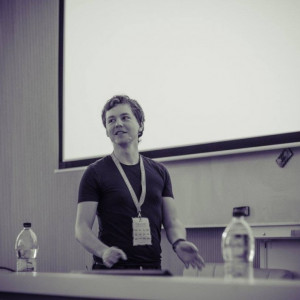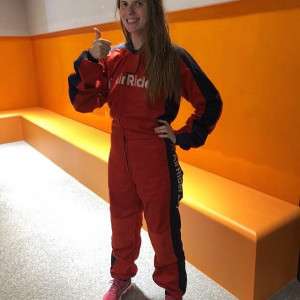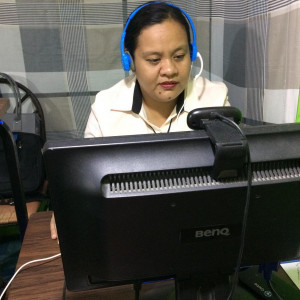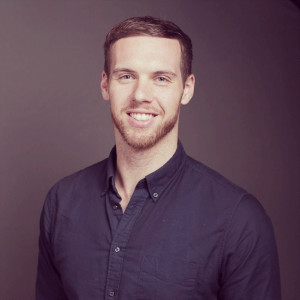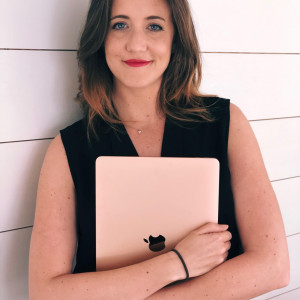How did you get started with remote work?
Interview with Max, a Deep Learning Engineer with a winning strategy for distractions
My remote work career started with a joke on social media. About two years ago I was following an interesting conversation on Twitter.
Someone shared a medium post about deep learning, my field of expertise, and the CTO of the remote-first company skymind.ai pointed out that this was based on work from one of their engineers.
Not only that, they had hired that engineer to maintain his open source project for them. I jokingly replied that if they ever needed me to work on my side projects, they'd know where to find me.
At the time I was just getting started with a lot of open source work and was intrigued by the idea of doing it full-time. I never thought this joke might lead to anything, but fast forward six months and I had an offer on the table. I then quit my old job and joined the team.
Transitioning into remote work wasn't easy at first; after all, I didn't plan for it. If you search the internet for "remote" in 2019, you get the impression that it must be a religious cult.
I see it as a trade-off. You gain a lot of flexibility, since many aspects of traditional work, like regular office-hours, don't make sense anymore. On the other hand, you become a work-time manager and have to put in place the structure you need to work at your best.
Working remotely is not for everyone, and you shouldn't put it on a pedestal just because it's new.
I think a lot of the advantages of remote work can be implemented on-site as well, but that takes a cultural shift and a new breed of managers. For me, remote work is an excellent choice at the moment, and I can see myself working like this for the next few years.
After a chance Twitter conversation, Max found a remote position as a Deep Learning Engineer —see how he manages distractions and maintains focus throughout his day.
Read full interview from Interview with Max, a Deep Learning Engineer with a winning strategy for distractions.
Interview with Igor Kulman, a software engineer building iOS apps remotely
About two years ago while still working in an office I got in contact with a remote company through a friend. I started working for them a few hours a week remotely and then after about 6 months later I got an offer to come work for them fulltime on a new project. I accepted and started working remotely fulltime.
In a previous job I was used to working from home one day a week, basically Friday was a "work from home day" for the whole company, but doing it fulltime is a real change.
It was hard in the beginning. I had the feeling that I have to be available and replying to everyone all the time so people see I am actually working.
This made the remote work more stressful than working from an office and I had to get rid of this feeling to actually start enjoying the remote work.
Now I can take a long lunch without checking my phone and not thinking about work. Or I can take a break and watch an episode of a favorite TV show without feeling guilty.
It also helped a lot that around the same time I moved to a new apartment where I had a spare room that I could dedicate to being a home office.
Igor converted a part-time contract into a full-time remote software engineering job—learn how he did it and his tips for working remotely.
Read full interview from Interview with Igor Kulman, a software engineer building iOS apps remotely.
Interview with Hannah, a freelance writer that travels the world
It wasn't easy at first. The process might be different depending on what type of remote work you're aiming for, but I can explain my process.
My friend John, knowing I enjoy writing, recommended I write on the platform Medium.
He gave me a challenge to write a piece every week. I took that challenge very seriously and didn't miss a week for an entire year. During this time, I worked standard in-person jobs.
I took that challenge very seriously and didn't miss a week for an entire year.
My writing was performing really well—it was getting significant views, comments, etc. When I moved, rather than find a full-time job, I got a part-time one. Now I had the time to make writing a supplemental income and, when I applied for jobs, I had plenty of samples to show.
No matter what your field, I highly recommend spec work whether it be redesigning a popular website to show design skills, coding your own app, or writing your own articles. But do it for yourself and keep all the rights.
Unless it's for a charity or close friend/family member, don't do anything for free. When you start to do work for others, show them creations you've created for yourself, and that proves your value.
My part-time writing grew until I decided to risk having it as my only gig. It was not easy going from there. However, I was in a point in my life where I was willing to take that risk. I recommend easing into 100% freelance unless you have a significant amount of money saved. It ended up working out for me, but not without some stress along the way.
It also helped when I really started to learn to charge closer to what I'm worth. Think about it: Would you rather work 10 hours for $10/hr or 4 hours for $25/hr? It's the same amount of money, but very different amounts of work. Don't charge barely minimum wage rates (or lower—I've seen it an endless amount of times) just because you are newer to a field. You can take that into account, but in the end, you're likely worth more than you think.
Hannah is a freelancer writer and social media manager that travels the world while working remotely. Read her interview to learn how she works.
Read full interview from Interview with Hannah, a freelance writer that travels the world.
Interview with Bennah, a remote ESL teacher that teaches kids English all over the world
I was working in an office before where they operate on online teaching jobs whose students are from Korea and Europe. I have worked there for three years and I resigned since I passed the Licensure Examination for Teachers.
I worked in a college and after four years I felt that the job I had cannot provide well for my family so I filed a resignation at the school where I was employed and a friend sent me a message that the online company he was working with is hiring an online teacher to teach Chinese Kids online.
With an empty pocket, I asked people for loans and bought a computer and installed internet connection to be qualified for the job. The first week was a struggle because I was only using a pocket wifi for my classes, and I don't have a good work station at home since I was only renting an apartment (an old shack).
After I have bought my camera and headset, I worked on a desktop computer which is better than a laptop. So through computers, I have delivered my teaching to students. We use applications like QQ International and Zoom.
Bennah is an ESL (English as a Second Language) Teacher who teaches students from all around the world while working from home.
Read full interview from Interview with Bennah, a remote ESL teacher that teaches kids English all over the world.
Interview with Deb, a sales copywriter who transitioned from software development
My background - I am an Indian, with a Computer Science and Engineering background. I started my career 19 years ago in Software Development in a small company, in Kolkata, eastern India. Worked there for a bit more than a year and a half, and then got an opportunity to work in Singapore, where I worked as a developer for 6 months.
My next job was in the UK, where I worked as a developer in a start-up dot-com company for 3.5 years. I didn’t live in London or in a big city. Rather, I worked in a quaint village called Burley-In-Wharfedale (near Leeds, West Yorkshire), that had a population of around 1500 people.
The interesting aspect of this job was that I landed in the UK and the dot-com bust took place. So, just imagine the tumultuous emotions that went through my mind as I grappled with fitting in a completely different culture with no surety whether the company I worked on would still be afloat in a week’s time!
However, I stuck to the grind and we scraped through the initial few months of the cull that was taking place all around the world at that time. During that period, the company I worked for was looking for ways to generate revenue, since advertising revenues were plummeting. So, I suggested that we explore the option of opening a software division of our company to execute IT projects with the help of tie-ups with Software companies in India.
Our directors agreed, and we opened a software division of the company and I was the primary contact person and acted as the business development manager for that division. My responsibilities included liaising between the Indian software companies and the UK principals from whom we procured the IT projects.
I was involved in all sorts of written communication between the parties. Starting from vetting the legal contracts (in conjunction with our companies’ legal team), to co-ordinating the conference calls (This was before the days of Skype, so we used to rely on land lines, which were not very cheap!) between the various parties, and so on.
I came back to India around 14 years ago for family reasons and continued working in business development/IT sales for various Indian companies for 7-8 years. During this time, I travelled to the US for Business trips, specifically Orlando, FL and Boston MA to procure software projects. I also went to Los Angeles, CA, and Las Vegas, NV to attend business conferences.
My last corporate job was back in 2010, wherein I led a team of Inside Sales specialists whose job was to sell a software product to various Fortune 500 companies in the UK and the US. All our selling was over email and the phone.
It was during my tenure here, that I developed a skill of being able to write persuasive emails.
I was laid off in 2015 due to a software paradigm shift and thought of taking this opportunity to reassess where my career was going rather than jump into another job right away. I had heard of remote working/freelancing and was entranced with the idea of working on my own and thought of checking it out.
The next hurdle was deciding which area should I focus on when it came to skill sets. Even though there were a few software sales jobs which were available to be done remotely, at that point in time, they were few and far between.
After much self-analysis, I realized that in most of the companies I worked for, I was given the responsibility of writing sales/marketing collateral, vetting legal contracts, and drafting customer facing emails. Since childhood, my passion was the written word, and I had won a few creative writing competitions during my university days. So, I thought of venturing out there and see if I could find any writing work as a freelancer.
A few web searches led me to the availability of content mills, which paid peanuts. But I thought of applying for a few of them to see if I could make any headway. After a month or two of applying randomly for as many jobs as I could, I got my first content writing job – a 1000 word blog post for a princely sum of $5.
I was happy, yet apprehensive. Plunging into research on the web, I soon came up with reference articles, from where I drafted my blog post. After reading and re-reading it at least four times, I finally submitted the blog post and sat back to wait with bated breath. Less than 24 hours later, the client accepted the article, giving me 5 stars for my work, and immediately commissioned me for 5 other similar pieces.
I was overjoyed, because in the depths of my heart, I’d never actually believed that I’d get paid to write!
Cut to a couple of months later and I was writing my heart out, pouring a lot of time and effort into writing close to 10,000 words in a week. But, soon, I faced burnout and realized that this way of working was not sustainable.
While I was writing for this content mill, I used to read the blogs of established bloggers and freelance writers to get inspiration and some direction on which way to go in my writing career.
During one of these searches, I stumbled upon Upwork and realized that this could potentially be a platform where I could leverage my writing skills to get better paying gigs.
I signed up at Upwork, created a profile, took the skills tests, and started applying for jobs there. It took a lot of struggles, and some time, but finally, I’ve reached a stage now, where I can pay my bills while working full time in a freelance capacity.
Deb made the jump from full-time software developer to freelance sales copywriter—learn how he made the transition.
Read full interview from Interview with Deb, a sales copywriter who transitioned from software development.
Interview with Henry, a consultant who found remote work by saying No
A friend of mine, based in the small town of Rockland, Massachusetts, was trying to hire a marketing strategist at his agency. He couldn't attract anyone to work in Rockland (the talent pool was too small), so he asked if I wanted to move from California to Massachusetts to join his company.
He had recently leased space with a conference room and five offices. He had a dream of filling it with a growing company.
I said no. Well, he hired me anyhow and I've been working for him ever since. He gave up the office space after that and we realized there was a lot more talent in the world rather than within driving distance of Rockland. We turned the company fully remote.
Sometimes a "no" can lead to an exceptional opportunity. For Henry, that answer led to an ideal remote work career. In this interview, Henry shares his remote work tool stack, and essential tip for remote employees and managers.
Read full interview from Interview with Henry, a consultant who found remote work by saying No.
Interview with Hanling, a data scientist that works remotely on machine learning
I think the experience I get started with remote work is a bit magical.
I started my remote work in the summer of 2014, when I was a sophomore student. At that time, we have a quite long summer, no homework, no intern, etc. Most of my friends are traveling around the country for sightseeing or doing part-time jobs like being a home tutor which is quite popular among us.
I don't have that much money for traveling such a long time nor I want to do the boring teaching thing, so I was wondering to do something that can train my skills, broaden my horizon and earn some tuition in the best case.
I came out of an idea that there should be a remote work site to utilize people's free time and skills around the globe. And if there isn't such one, I will try to build one myself! Then I tried to search it on Google. Suddenly I found Upwork.
I saw there are lots of opportunities on Upwork for me.
So I registered an account, do the verification, figure out how the sites work and then I got my first job on Upwork which is a ghostwriter.
After that, I got many other jobs on the platform including virtual assistant, translator between English and Chinese and so on.
Hanling started working remotely as a student and now does freelance machine learning and data analysis for clients all around the world.
Read full interview from Interview with Hanling, a data scientist that works remotely on machine learning.
Interview with Stefan, a founder building a location-independent startup
I first worked remotely in 2016 but didn’t do it in earnest until 2019.
Back in 2016, I’d left a consulting job to start my first business, which was failing miserably. I was working remotely on that startup the whole time, but it was because I couldn’t afford an office.
I went back into the working world, working for some startups in Toronto. During that time, I felt like the office environment maybe wasn’t for me, and I started freelance writing as a side hustle.
I loved that I could serve my clients and deliver value from anywhere— all I needed was my laptop and a wifi connection.
I worked in office environments from early 2017 to January 2019. After that, I decided to take my business full-time. I also decided that I wanted to work remotely. Instead of paying for an office rental, I loved the freedom of being able to see clients, travel, and work from home whenever I wanted.
Stefan now has total control over his time since leaving the traditional office in early 2019. Hear how his routine is helping him build a solid remote startup.
Read full interview from Interview with Stefan, a founder building a location-independent startup .
Interview with Erin, a virtual assistant with a successful approach to freelancing
My road to remote work was actually quite long and winding. I had been working in film in Louisiana for over 5 years and was already nearing burnout with the demanding hours. In 2013, I took a leap of faith and launched my own business - an on-demand concierge business to assist other crew members.
While on paper it made sense to market concierge services to busy film production crews, I quickly discovered that not many were willing to pay for those services. So, I turned to remote assistance instead.
Initially, I joined a service called Zirtual that matched virtual assistants with clients. While the formal training and support I received from Zirtual were fantastic at the start of my VA career, I eventually left the company to lead my own VA business.
Having greater autonomy over my working hours, the services that I offer, and pricing have been incredibly rewarding, and I haven't looked back since.
Erin has found freelancing success as a virtual assistant—see her organizational tips & insights into how she picks clients that suit her business.
Read full interview from Interview with Erin, a virtual assistant with a successful approach to freelancing.
Interview with John, a web developer who works from home
In 2009, I was unhappy with my corporate job. A couple of friends and I decided to start a WordPress development agency.
Since one was in Texas and two were in Vegas, it made no sense to try and have an office. So, we all worked from home. Although I don't run that agency any longer, I have yet to go back to working in an office and will avoid it for as long as possible!
John is a web developer running a mini-agency inside a larger WordPress agency - learn how calendar management and establishing boundaries have helped him boost his productivity.
Read full interview from Interview with John, a web developer who works from home.

